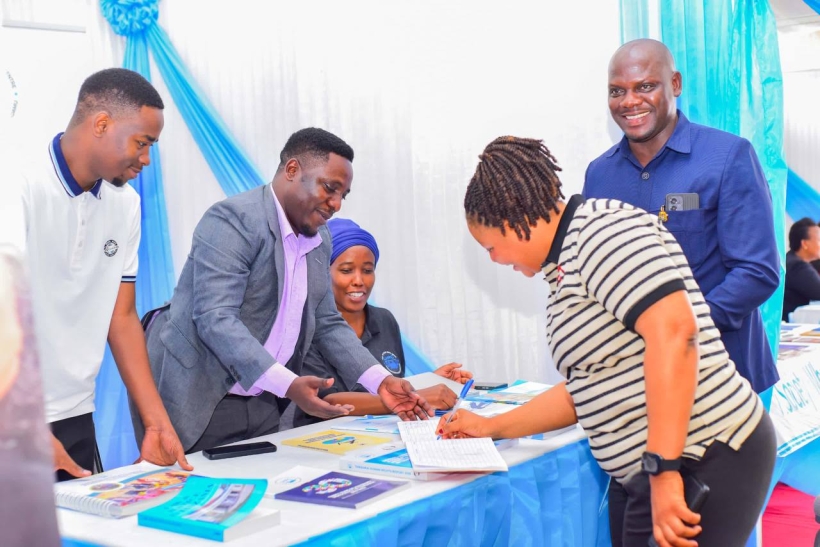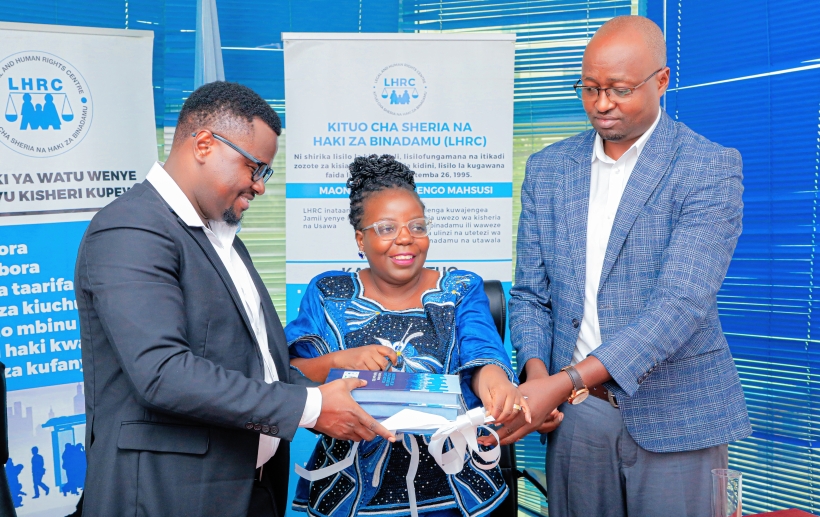Human Rights Monitoring and Response
Human Rights Monitoring and Response strategy addresses the increasing scale of human rights abuses requiring direct intervention by LHRC. This approach enhances the capacity of frontline defenders and community activists, integrates response mechanisms across LHRC programs, and establishes detailed guidelines for standardized efforts. It also includes an emergency response fund and psychosocial services to support victims, while improved referral systems enhance efficient case handling.
The approach is complemented by mobile legal aid clinics that serve underserved communities, encouraging and engaging citizens to actively condemn abuses. Additionally, this approach focuses on strengthening the capacity of Friends of Haki to report and respond to human rights violations effectively. LHRC reaffirms its commitment to defending and promoting human rights effectively and sustainably through these initiatives.
Advocacy and Access to Justice
LHRC advocates for a democratic and rights-based society by pushing for legal and policy reforms at national, regional, and international levels. Its advocacy focuses on strengthening inclusive and effective civic space, socio-economic legal frameworks, criminal justice systems, and climate resilience while promoting digital rights, democratic governance, and human rights. LHRC uses a data-driven approach to engage the Parliament and key stakeholders for civil and political rights as well socio-economic rights including consumer protection, ultimately working towards a just and equitable society. In addition, through strategic litigation, LHRC challenges injustices in courts and influences laws.
Governed by the Legal Aid Act of 2017 and regulations made there under, LHRC provides a range of legal aid services, including legal advice, court representation, and assistance with alternative dispute resolution. LHRC extends its legal aid support to individuals in detention or facing criminal charges, ensuring that their rights are upheld within the justice system. At the grassroots, LHRC works with 36 community paralegal organizations. Paralegals contribute to increased legal literacy and rights awareness, shifting social norms, and strengthened grassroots capacity to respond to violations. They have been instrumental in educating communities, monitoring and reporting violations, and referring cases to LHRC and authorities.

Capacity Development and Community Engagement
The Capacity Development and Community Engagement (CDCE) program focuses on empowering communities to address violence and discrimination against women, children, and persons with disabilities (PWDs). The program also aims to fostering citizen agency in holding leaders accountable to citizens’ needs and concerns. Through workshops, training, and outreach, CDCE strengthens grassroots organizations, duty bearers, and individuals take collective actions against violence and harmful practices.
The involvement of over 20 community radios in specific zones ensures a broad reach, allowing facilitators to educate, engage and inform listeners on human rights issues.
Collaborative quarterly content planning sessions with community radio producers, Friends of Haki, Paralegals and Lawyers help to plan, track and assess the impact of their work, ensuring accountability and effectiveness.
By promoting active citizenship, the program equips young people with the skills to demand accountability, navigate legal systems, and participate in decision-making. Employing collaborative approach, involving international and local partners, the program ensures that community voices influence global human rights mechanisms and drive sustainable social justice initiatives.

Research
Research is one of LHRC’s key programs, aiming to ensure the availability of data and information to support evidence-based advocacy initiatives. The primary objective of LHRC’s research program is to document human rights issues and violations and to conduct research on selected human rights topics or issues. This research generates data and information that are used to support advocacy and empowerment initiatives of LHRC and other stakeholders.
The program oversees the collection of data from both internal and external sources, as well as the analysis, interpretation, and dissemination of research findings. Key deliverables under this program include the Tanzania Human Rights Report and the Human Rights and Business Report, which have become leading references to the human rights situation in Tanzania.
Through this program, LHRC also collaborates with partners and like-minded organizations within Tanzania and beyond to carry out research-related activities.




